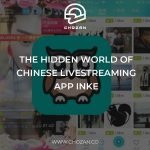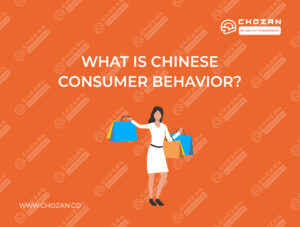Online video-sharing platforms shaped the way we consume videos since more than 15 years now. Viewers use these platforms to watch news and entertainment, express opinions or buy what they see.
Even though YouTube and Youku are similar, Youku does a better job catering to brands’ needs.
Differences between YouTube and Youku
About YouTube
YouTube began its online life in 2005. It’s played a huge role in shaping the internet, broadcasting and pop culture ever since.
It’s the largest and most influential online video platform in the world. It’s available in more than 88 countries and has more than 15 billion visitors a month. YouTube focuses on user-generated content with the slogan “Broadcast Yourself”. Increasingly, it’s an alternate broadcaster with its own shows, series, stars, channels and producers and some of its stars become famous enough to cross over into mainstream success outside of the platform.
About Youku
Youku began in 2006. It started out as China’s version of YouTube.
But after merging with Tudou and later being acquired by Alibaba Group, it changed and is now much more like Hulu, specializing in web rebroadcasts of TV shows with ads of their own and copyright permissions from TV broadcasters already in place. Although it also has user-generated videos, 70% of viewers use it to watch TV series, movies and variety shows.
Online video platforms have witnessed significant growth in the past decade in China, and the total number of online viewers reached more than 688 million last year. Youku is one of the biggest video platforms, has over 500 million monthly active users and offers many opportunities for brands to advertise in China.
1. Types of Ads
YouTube and Youku both provide basic types of ads such as banner ads and media pop-ups but Youku is more dynamic and has more options available.
Youku’s pre-rolls are different and it has pause ads and corner logos, which YouTube lacks.
Pre-rolls
Longer pre-rolls in YouTube can be skipped after the ad plays for 5 seconds. However, they can’t be skipped in Youku. Most Youku users, except for a small number of paying VIP users, have to let ads run for their full time.

↑ A pre-roll ad on Youku.
Pause Ads
When users press the pause button, a pause advertisement pops up and stays onscreen as long as the video is paused. They’re usually still images with a simple layout and highlighted key words.

↑ A pause ad on Youku.
Corner Logos
In 2012, Youku merged with Tudou, another big online video platform in China, and the Alibaba Group acquired this merged version of Youku in 2015. After that, the site began to combine online video and e-commerce in new ways. Original video creators can add matched stores or product ads in the right corner of videos.
When users click the corner logos, it takes them to T-mall or the brand’s Taobao store. This is a win-win situation for online creators and shops and also allows for an approximation of a “See Now, Buy Now” function.
YouTube also has this function but lacks close cooperation with e-commerce platforms like Amazon, so ads on YouTube only link to a brands’ official website.
2. Official Brand Channels
Brands can create their own channels on both YouTube and Youku, showing ads or product reviews but Youku provides more functions.
For example, brands can add a short promotion or campaign video after one of their general ads. Other functions like original content verification, polls and adding a text layer to videos are also useful.
However, the biggest difference between an official YouTube and Youku channel is that brands can set up online stores in the menu bar on Youku. This allows users to buy what they see in the videos immediately.
It provides a new viewing experience for users and boosts sales at the same time.

↑ The official GoPro Youku channel and online store menu.
For example, GoPro’s official account on Youku has over 2 million video views and 12,000 fans. The menu bar has a button for their online shop, where products are displayed. The orange button “Buy Now (立即抢购)” at the bottom right of each product links to GoPro’s official T-mall flagship store.
3. Campaigns
Brands can conduct marketing campaigns on both YouTube and Youku. However, with the cooperation of Weibo and Alibaba, campaigns conducted on Youku have greater scope and influence.
Social + Youku
In early 2013, Youku and Weibo, which is China’s version of Twitter, began cooperating so now users can view Youku videos directly on Weibo providing a new channel and viewing experience.

↑ A Pizza Hut campaign video.
In March 2016, Pizza Hut conducted a video campaign called “Sharing love is natural (天生爱分享)” on Youku and Weibo. Hu Ge, a Chinese actor, shot a 3-min video to show how ordinary people love to share in their daily lives.
The campaign also invited KOLs to shoot their own related videos and share them on Youku. People were encouraged to submit their short videos and share their own stories.
In only 3 months, the videos had tallied more than 800,000 views.
Live streaming + E-commerce + Brand Accounts
Owned by Alibaba, Youku has more opportunities to convert users to consumers. Brands can live stream campaigns on Youku to promote products or services. For example, in June 2016, Lin Yilun, a Chinese singer and actor, held a 2-hour live stream on Youku. During the live stream, he introduced a chili sauce.
The live stream got over 7 millions views and more than 3 million jars of chili sauce were sold.

↑ Lin Yilun’s live stream on Youku.
Want to know more about how to set up an official Youku account? Looking for Youku marketing campaign idea? Please leave a comment below.
To get deeper insights into Chinese social media marketing and utilizing it to serve your business, join ChoZan, a training and resources platform for Chinese social media marketers.
Please follow our official WeChat account to get more updates about the latest news, feature updates and case studies.

Share this article on your favourite social media
Read more related posts
-
Live Quiz Apps: the Latest Trendy Marketing Channel in China
Wang Sicong, an outspoken blogger and the son of a Chinese billionaire, published a post on Weibo early January, inviting his followers to download a quiz game app called Chongdingdahui…
-
Weibo Marketing: Campaigns and Why We Use Them
With over 126 million daily active users, Weibo is an important social media platform in China. For companies seeking to engage consumers, advertise their products and and expand their follower…
-
The Hidden World of Chinese Livestreaming App Inke
Recently I saw a guy filming himself with his phone while crossing the street in China. It seemed like he was Facetiming with a friend. But he was actually doing…
-
Live Streaming in China: The Top 5 Platforms
Live streaming in China is becoming the most popular video format with more than 325 million online viewers in total, or 45.8% of Chinese netizens, according to The Chinese Live…
-
The "Live Streaming +" Mode is Flourishing in China
Starting in 2016, live streaming in China has been making headlines in mobile Internet news. Its breakthrough in the booming mobile internet sector is because it offers smartphone users a…









